
PR
March 3 is one of the five festivals of the year, Kamisneki-no-SekkuIt is a festival of the peach season. Many people are more familiar with the term "Momo no Sekku" (Peach Festival) or "Hina Matsuri" (Girls' Festival). It is said to be a festival for girls, and is celebrated by decorating hina dolls, drinking amazake (white sake), eating chirashizushi and hina arare, and celebrating the healthy growth of daughters.
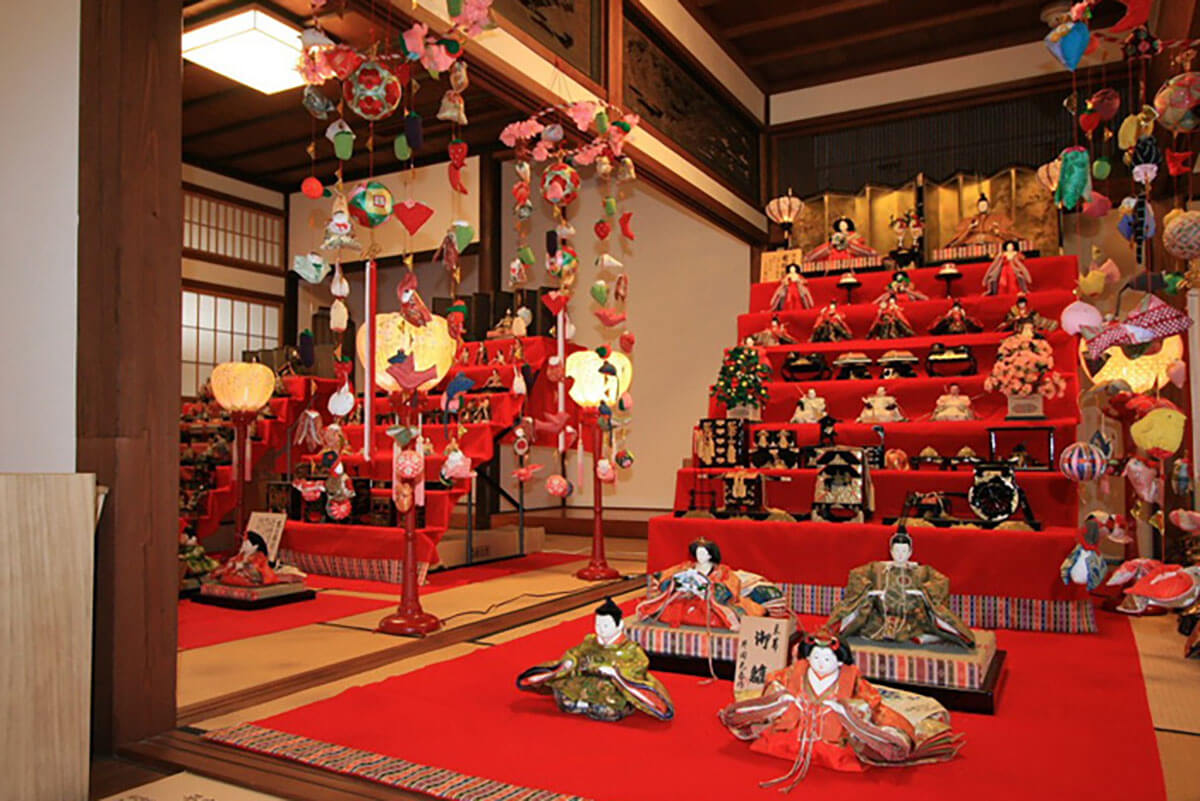
Seven-tiered Hina Dolls
(show quote/...)free_image_hinaningyou)
When I was a child, my grandmother gave me a seven-tiered doll set. At the end of February, when spring was in the air, my mother and I would pull out the dolls, snow caves, chests, and long utensils from the closet, assemble the tiers, lay out the scarlet carpets, and decorate the dolls and utensils one by one.
Hinamatsuri is an ancient Chinese purification ceremony.It is based on the custom of "Nagashi Hina," in which the dolls are floated down a river or into the sea to ward off bad luck and misfortune.
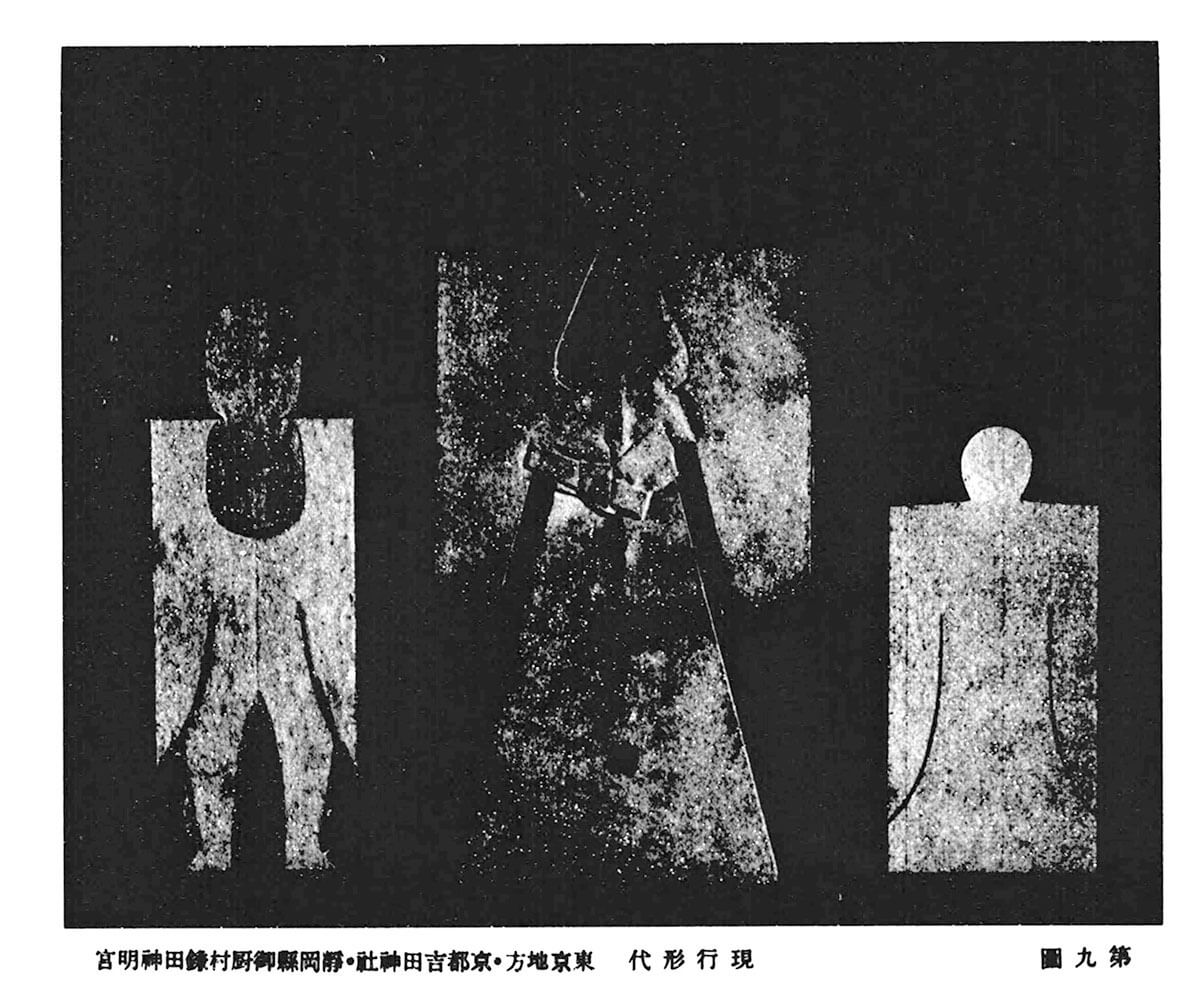
Japanese Hinamatsuri Kou" Katajyo
(Digital Collections, National Diet Library)
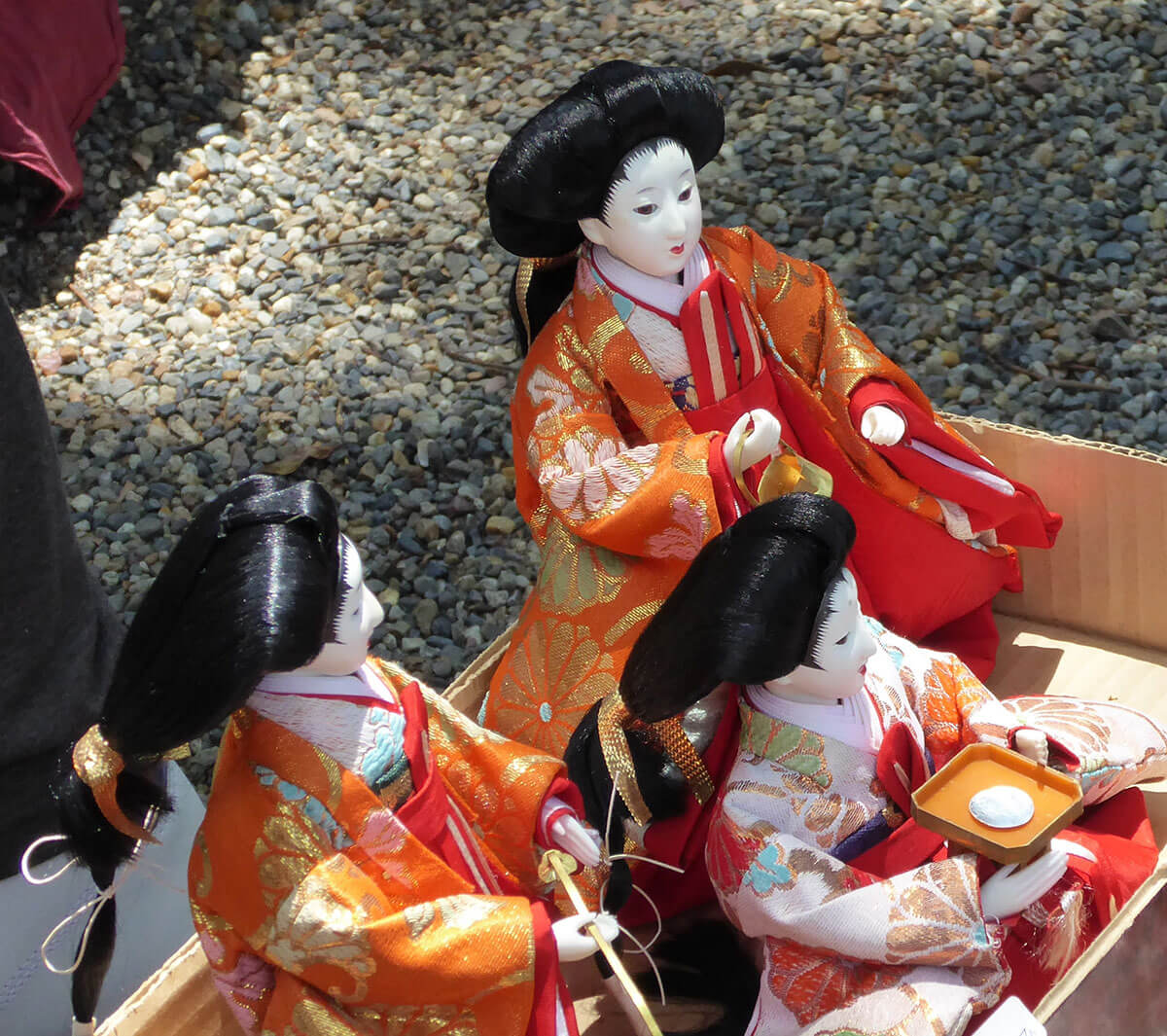
The Three Daughters in a Box
This became the "hina play" of the princesses of the Heian period, just as it is today.The custom of decorating households with dolls took root in the Edo periodHe said that it was only when the
When decorating dolls,In Kyoto, the male dolls are displayed on the left (facing right) and the female dolls on the right (facing left).This is an ancient Chinese"The Son of Heaven faces south."It is derived from the legend that "If you sit facing south, sunrise is on your left. When seated facing south, sunrise is on the left and sunset is on the right. The emperor stood on the left and the empress on the right at the accession ceremony at the imperial palace in Kyoto's Shikikinden Hall. This was also the way of decorating Hina dolls in Kyoto households. The position of these dolls isKyoto-style tie-dying ceremonyIt is called.
In the Kanto region, on the other hand, the position of the dolls is reversed. In the accession ceremony of Emperor Taisho, the emperor stood on the right and the empress on the left in accordance with the Western style, and the idea that right is the upper seat seems to have taken root.
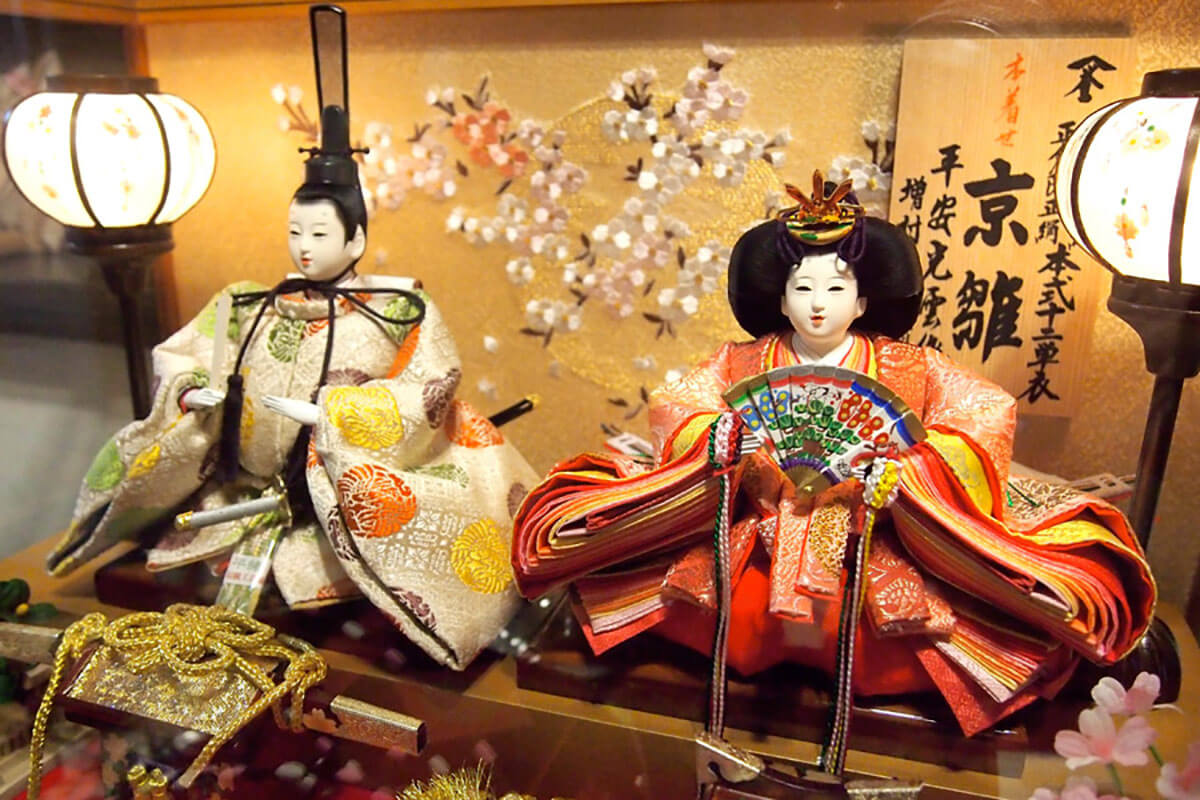
Dolls in the common way of decoration (public domain)
By the way, from long ago,Legend says that if the dolls are put away too late, the daughter's marriage will be delayed.There is.Also related to the description of "getting married" as "getting put away".I heard that they do. Indeed, I remember rushing to clean up the hina matsuri the day after the festival when I was a child. I always felt a sense of tastelessness in my heart as a child because I was always in a hurry to clean up. One theory is,It is good to put away the doll's ornaments on March 6, the day of the Enkihiki.It is considered to be Just,In some areas of Kyoto Prefecture, it is decorated until March 3rd of the lunar calendar, about one month later than usual.In some places, the Christmas tree is put away the next day in Japan. As a side note, Christmas trees are put away the next day in Japan, but in Europe and the United States, they are displayed for a week after the New Year. It is said that it is bad luck to put it away early. Perhaps the Japanese are impatient, or perhaps it is a sign that they cherish the sense of the season.
Now, every year on March 3,Hinamatsuri (Girls' Festival) events are held in many places in KyotoThe first two are the Shimogamo-jinja Shrine and the Shimogamo-jinja Shrine. Nagarehina (streaming hina) will appear on the Mitarashi River at Shimogamo Shrine, and people will appear on the Hinadama (Girls' Day) at Ichihiru Shrine, dressed in costumes. However, due to the new coronavirus, various events have been canceled or postponed this year, so please check in advance. Just,Hina Matsuri is an event to ward off bad luck.For example, the Hishimochi that is displayed and eaten at Hina Dolls' FestivalPink is the color of peach to ward off evil, white is the color of snow to purify, and green is a tree for health.The colorful pink, green, yellow, and white hina-arare also incorporate the three colors of hishimochi. It is also said that the colorful pink, green, yellow, and white hina arare are derived from the three colors of rhombi rice cakes,Representing the seasons of spring, summer, fall, and winter, it is a prayer for a year of good health and good fortune.I also asked.
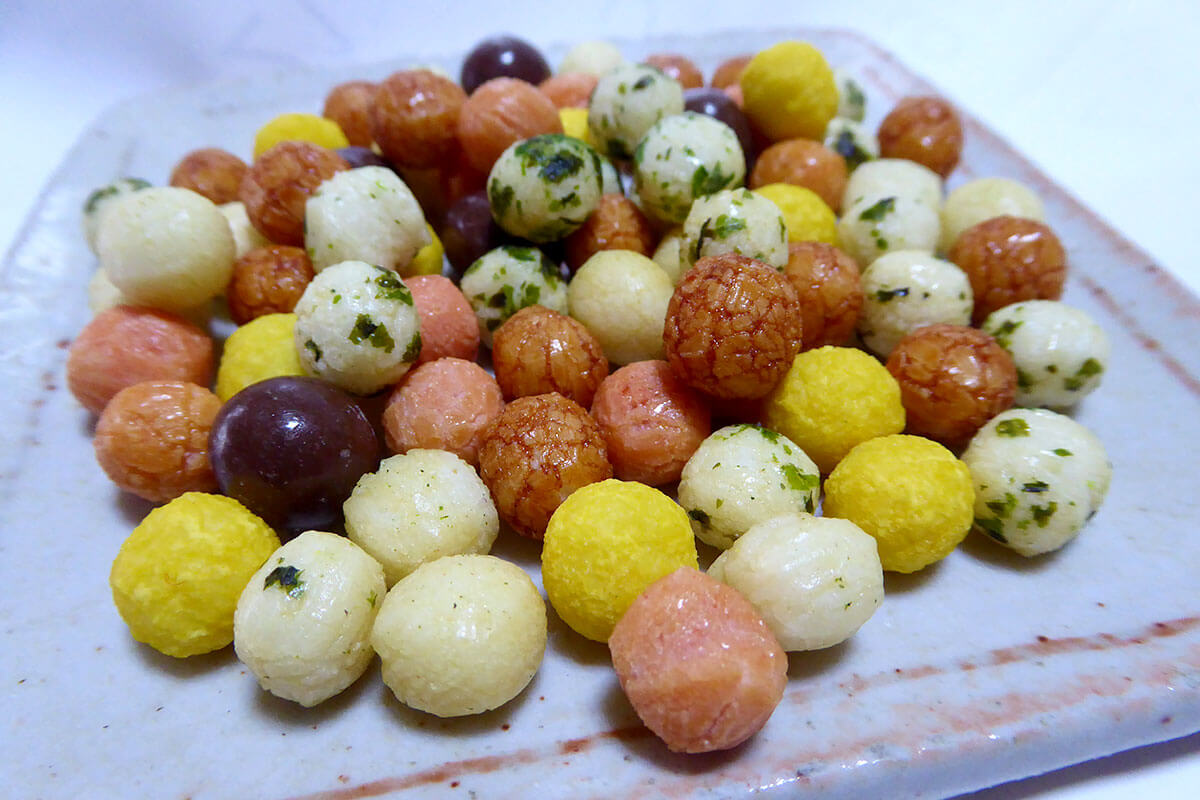
sweetened rice-flour cakes for offering at the Dolls' Festival
from long agoIn Kyoto, merchants prayed for their daughters to be rid of bad luck, and at the same time, to marry into a respectable man like Ouchiura-sama.The people used to decorate the hina dolls with a wish that the spring would come and the bad luck would go away. This year, it seems that more and more people will refrain from going out and decorate hina at home to pray for the coming of spring and the disappearance of bad luck.
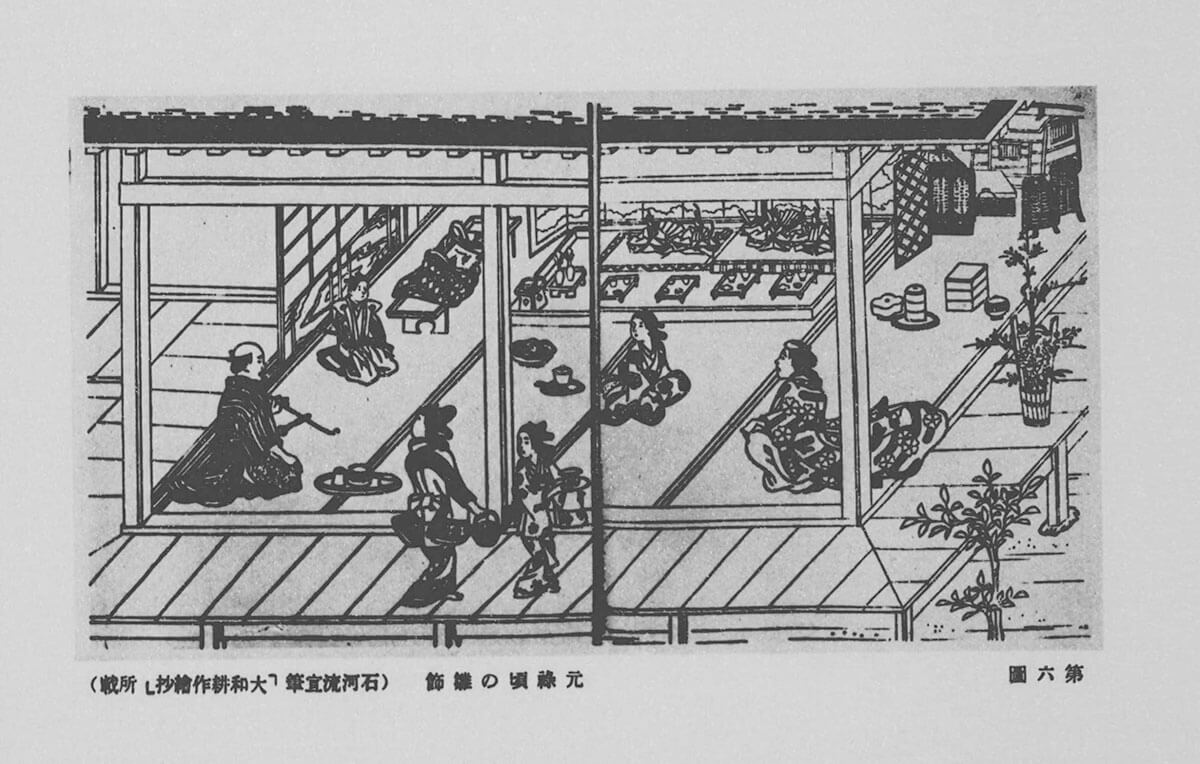
Hinamatsuri Kou in Japan" (in the Digital Collections of the National Diet Library)
Kyohinagata-style Hina decorations can be seen in the back.
Tradition that exists everywhere in the city of Kyoto. It is not just a picture, it is secretly alive in this modern age and continues to coexist with people. The two of Office TO, who previously wrote a series of articles "Kyoto's Demon World Exploration" in the monthly magazine Leaf, explore the mysterious "different" world of Kyoto, which was created over 1200 years. I will unravel the story while actually visiting the place. .
 News
News Feature article
Feature article Featured event
Featured event